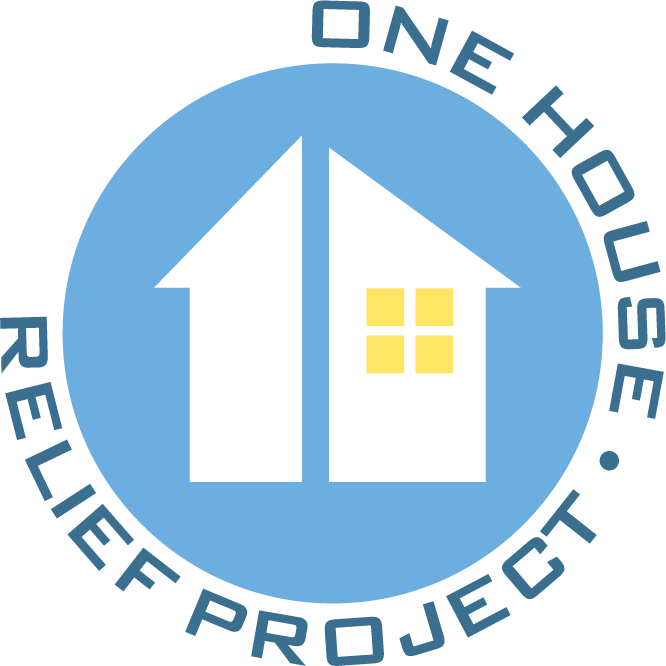FAQ
Q: How do you choose which houses to pay off?
A: Initially we are looking for houses that have a low mortgage balance remaining. If you currently owe less than $30,000 on your mortgage we would be interested in talking with you. We may be able to pay off your home – as long as you promise to continue making payments to One House Relief Project. We’ll never pay off a home that has less than 50% owner equity in the home, based on current market value. As long as a homeowner has a vested interest in keeping the equity in their home, they will continue to make payments on their mortgage.
Q: What percentage goes to humanitarian relief?
A: 100% of every donated dollar goes toward paying off a house first. Homeowners make payments back to One House Relief Project until the balance, plus interest, is paid off. Of the payments that come back to One House Relief Project, there is a sliding scale of what percentage gets routed to humanitarian relief projects. Initially, the percentage is small, between 1-2% of each month’s payment. As more homes come into the pipeline, the percentage raises to 50% of each month’s payment used to fund humanitarian relief projects. By sliding the scale from a small to a large percentage and reinvesting the initial majority of the money into paying off additional homes, we provide stability to the project. Once the benchmark of 50% of each payment being routed to fund humanitarian relief projects is reached, the other 50% is used to add additional homes to the pipeline, and finance further humanitarian relief projects.
Q: What interest rates do you charge?
A: The goal of charging interest is to channel the interest income to fund humanitarian relief projects. Most homeowners appreciate that the interest they are paying is going to perform service. Of the loans we have offered in the past, most have paid the same rate they were previously paying. We have no control of market conditions or control over competitively offered loan rates. We will always offer competitive market rates, or lower if possible.
Q: Will you pay off my house if I participate or donate?
A: Donating to One House Relief Project is appreciated, but offers no correlation to the homes we choose to pay off.
Q: Is there a fee to pay off my home? Or, Are there closing costs to having my home paid off?
A: The short answer is yes. We will not charge a loan origination fee, or any other fee we don’t have to charge by law. We will have to pay for a title search to make sure the property has a clean title, and to place One House in first position. This, and any other fees will be rolled into the new balance. The justification, or upside for these fees is that the new structure has the ability to be much more flexible, should hardship occur. This flexibility is better able to protect the equity in a home.
Q: Will you foreclose on a home for non-payment?
A: Yes, just as a mortgage lender would. One House Relief Project depends on homeowners making their payments to fund relief projects. We certainly have more flexibility than a traditional financial institution; however, by not being strict on the receipt of payments, we surrender our ability to the good for which we started this project.
As part of an agreement between the homeowner and One House Relief Project, we pay for title insurance to make sure that we are in first position. This means that if the homeowner were to ever default on their payments, One House Relief Project is first in line to get money from the sale of the property. One House will always be sensitive to extenuating circumstances and flexible to the needs of the homeowner’s repayment schedule, as long as the homeowner is making a sincere and consistent effort to repay the balance.
Q: What NPOs or causes do you sponsor?
A: We do not endorse any specific organization or institution; rather, we fund projects based on servicing basic needs. We do partner with specific organizations to accomplish our manifest purpose. The decision to fund any specific organization is based on our internal criteria. Our initial focus is to fund organizations that focus on basic needs – food, shelter, and clothing. Once we have additional homes paying into the system our next area of focus is education.
